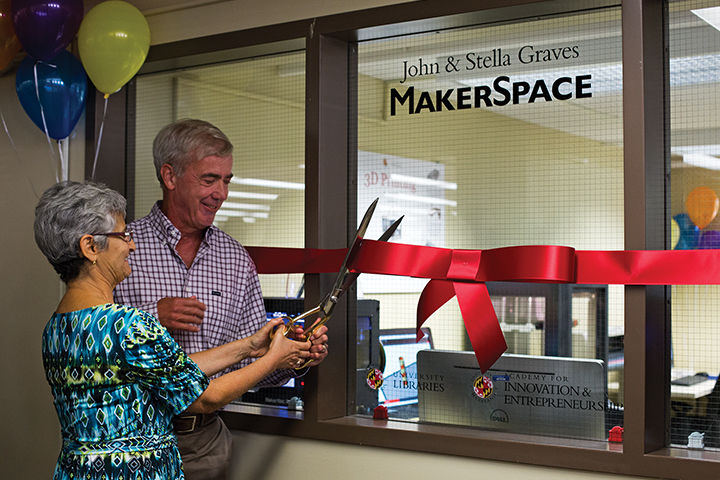Views expressed in opinion columns are the author’s own.
The University of Maryland has a variety of designated “makerspaces” scattered across the campus. These spaces have materials available for student use, but they aren’t always marketed broadly. They’re a bounty for any student at this university, and they can be used to support powerful student initiatives. Activists should seek to utilize this university’s bevy of makerspaces to galvanize their movements, and the university should likewise work to advertise their makerspaces more widely.
Student activism at the university suffered a blow last year with the closing of the Maryland Food Co-op, a decades-old sandwich shop and beloved establishment for impassioned individuals to gather, plan, host events, and work collectively for their causes. This loss removed this university’s activist scene’s most prominent physical space.
Sustainability focused organizations such as Alternative Exchange (a cooperative thrift store run by former worker-owners and patrons of Maryland Food Collective) and SCoop (UMD Sustainability Cooperative) have used LEAFhouse — a sustainable home built for a 2007 Solar Decathlon — on North Campus to hold events. But this space is small, difficult to reach, and not intended to provide students materials and space for project creation.
Yet all around campus are these centers, for students to go and work, with a variety of focuses and disciplines. Sure, it may seem a bit odd to encourage students to use the makerspaces for activism. But just take a look at the university’s vague list on the library website, which is paired with Terrapin Learning Commons spaces and labels itself definitively as “List of Makerspaces at UMD.”
Here, info can be found on what is commonly known to frequent McKeldin Library visitors: the John and Stella Graves Makerspace. This location allows students to enter and use a variety of technology, boasting access to 3-D printing, drones and virtual reality are all available for use during open hours.
While this site does at least provide basic info and links about a variety of spaces across departments, based on this list alone, a student activist may feel discouraged by the number of inaccessible equipment names and a list of restrictions for space use.
Many of the university’s makerspaces are hidden treasures of their respective departments. Among those are The Vortex, a former welding shop run by the physics department that was recently opened to students as a creative space. The Vortex claims to host frequent workshops for beginners with no prior knowledge required, providing a space for accessible learning.
While I don’t pretend to know all means of student activism and projects, welding and 3-D printing are not generally the most commonly thought of methods. However, still on campus lurk other potentially indispensable resources for student activists.
Not listed on the library’s site — because it’s not associated directly with Terrapin Learning Commons — is the Sandbox makerspace in the Iribe Center. The Sandbox is multimedia and multi-discipline, working toward providing aid to students starting projects of all sorts. The space offers supplies and mentorship in addition to, well, physical space for your work.
The English department, too, has its own hidden gem on the third floor of Tawes: BookLab. Listed on their webpage as a “maker space, a studio, a library, and a community press,” BookLab is open to students of all disciplines throughout the week. Attended by two professors and two graduate students, BookLab is a space that provides both materials and means to print: bookmarks, posters, signs, chapbooks and stickers are all at the disposal of university students if they know where to look.
To the University of Maryland: make your makerspaces more accessible to students. To all the activists on campus: the resources and mentorship to create new work is here, it’s free, and you should use them to their fullest potential.
Lexie Werner is a senior English major. She can be reached at lexiew@terpmail.umd.edu.



